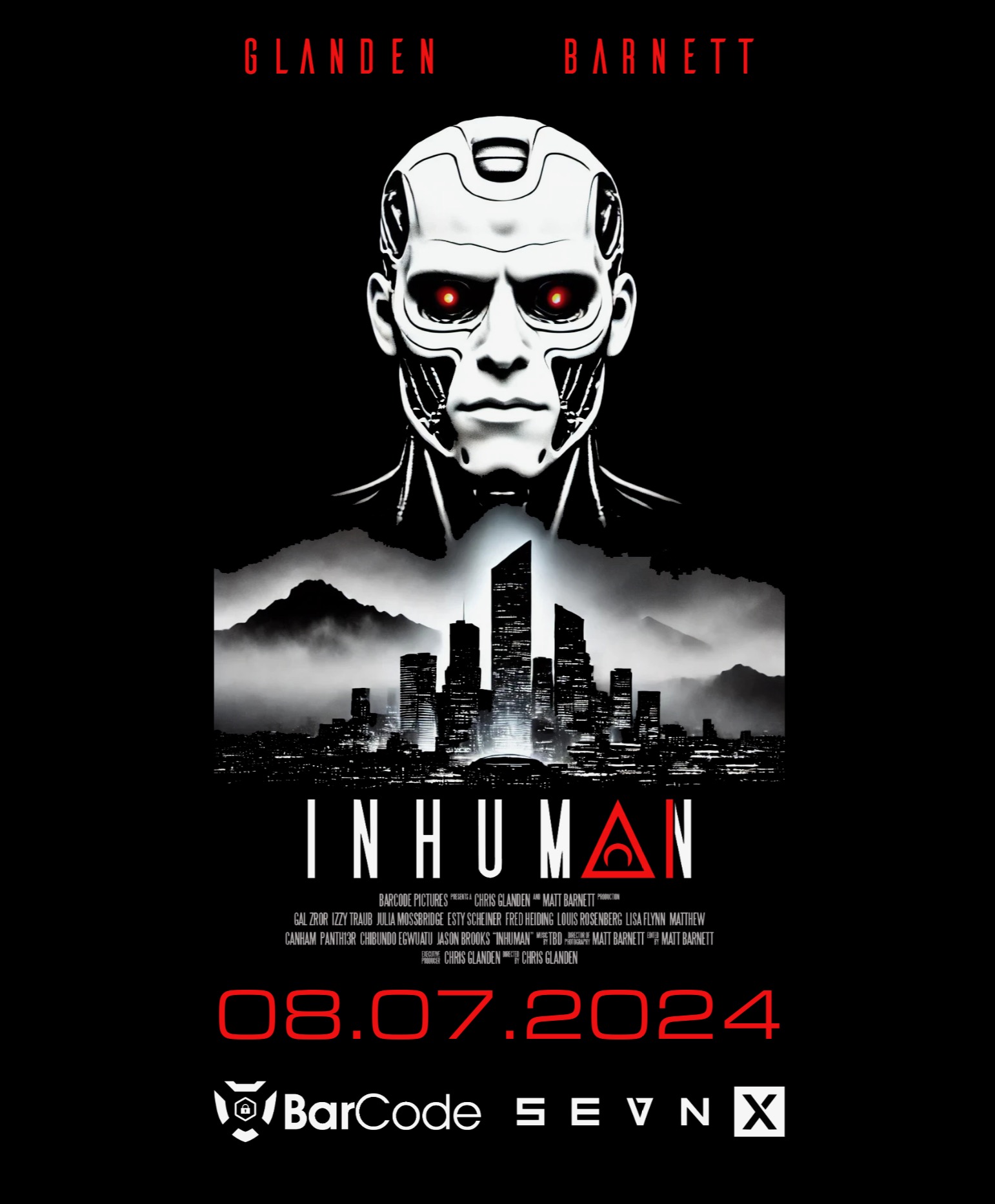Last week, in a parody campaign ad featuring Kamala Harris, the presumptive Democratic presidential nominee admitted, among other things, that she is a “deep state puppet.”
It was fake, of course, presented as an amazing example of what AI technology can do. Next time, it might not be an identifiable parody.
Deepfake technology is the focus of part one of “Inhuman,” a documentary series about AI weaponization. Chris Glanden, founder of Wilmington-based BarCode Security and podcast, and Matt Barnett, cofounder and CEO at King of Prussia cybersecurity company SEVN-X, traveled across the country interviewing experts about the dark side of AI. After a year of work, part one will have its world premiere in Las Vegas on August 7.
The documentary started as an idea that connected to Glanden’s popular BarCode podcast out of Pike Creek, with regular live broadcasts around the region. When it came to finding people to interview, Glanden and Barnett chose to start filming at the Las Vegas cybersecurity conference Black Hat 2023 last summer.
“Black Hat is a place where some of the smartest people in the industry and innovators gather,” Glanden told Technical.ly. “We capitalized on that as our starting point for the filming process and interview process.”
As AI gets sharper, fakes become harder to detect
The documentarians interviewed Fredrik Heiding, a research fellow at Harvard’s John A. Paulson School of Engineering and Applied Sciences focusing on AI-enabled cyberattacks.
In one of his studies, his team scraped information about people online and used it to create extremely personalized phishing emails that are almost impossible to detect.
“They’re pretty much guaranteed to be better than anything you can do by hand because we capture your entire digital profile and we basically learn everything about you,” Heiding said. “And this is only the tip of the iceberg.”
The days when grammar errors and typos served as dead giveaways that an email or text is fraudulent are long gone. Three years ago, a deepfake Tom Cruise was going viral on TikTok; today technology exists where you could have a live conversation with a deepfake Tom Cruise on Zoom.
“Eighty percent of people in this country believe that deep fakes are going to affect the presidential election this year,” Barnett said, citing Adobe’s Future of Trust study. It’s not surprising when you consider how ubiquitous generative AI has become in everyday life over the last year and a half.
“One thing that stuck out to me as we were putting this together is just how influential AI is across every industry,” Barnett said. “In every vertical, it’s being used for good, it’s being used for evil. There’s this duality to AI that we explore in the first episode.”
In the episode, Glanden and Barnett show the viewer what it takes to create deepfakes with the help of founder and CEO of VFX Los Angeles Izzy Traub, who creates deepfakes for Hollywood productions, including replacing a stuntman or stand-in’s face with an actor’s face, de-aging and syncing an actor’s face to a different dubbed language.
Traub will also be demonstrating VFX Los Angeles’s real-time deepfake technology at the Las Vegas premiere.
Spreading awareness about the lack of AI laws
Other topics “Inhuman” will address include AI regulation, or the lack thereof, and the use of deepfake technology to create nonconsensual pornography.
“I was really shocked by the lack of regulation in place for deepfakes,” Glanden said.
As of now, The DEFIANCE Act, short for Disrupt Explicit Forged Images and Non-Consensual Edits, which allows victims of pornographic deepfakes to sue the perpetrators for up to $250,000, has passed the U.S. Senate unanimously and will be heading to a House of Representatives vote soon.
But regulating AI models in general isn’t as strongly embraced: Just today, the National Telecommunications and Information Administration’s new announcement that the U.S. government will monitor, but not regulate open source AI models because, as Barnett said, there is a lot of good that AI can help accomplish.
“If you think about healthcare, allowing [AI models] to make these types of assessments based on the world’s medical knowledge today has real value,” Barnett said. “Curing cancer is not a euphemism here. It’s real.”
The documentary, they hope, will make more people aware of just how far the technology has come, and how dangerous it can be in the wrong hands. Glanden and Barnett made the film with no investors or production company funding it, instead funding it with their own money.
“The most enjoyable part for me was probably the creative freedom that came with that,” Barnett said. “We didn’t have to push a particular agenda. We didn’t have to alter the way that we wanted to portray this in order to fit some directive from above.”
After “Inhuman” episode one premieres in Las Vegas, Glanden and Barnett plan to hold additional premieres in Wilmington and Philadelphia but they haven’t announced when yet, and the series will stream on YouTube, with a possibility that it may be picked up by a streaming service.
“Chris and Matt really capture the essence of cybersecurity week in Las Vegas,” Heiding said. “It’s cool and it’s on point.”








